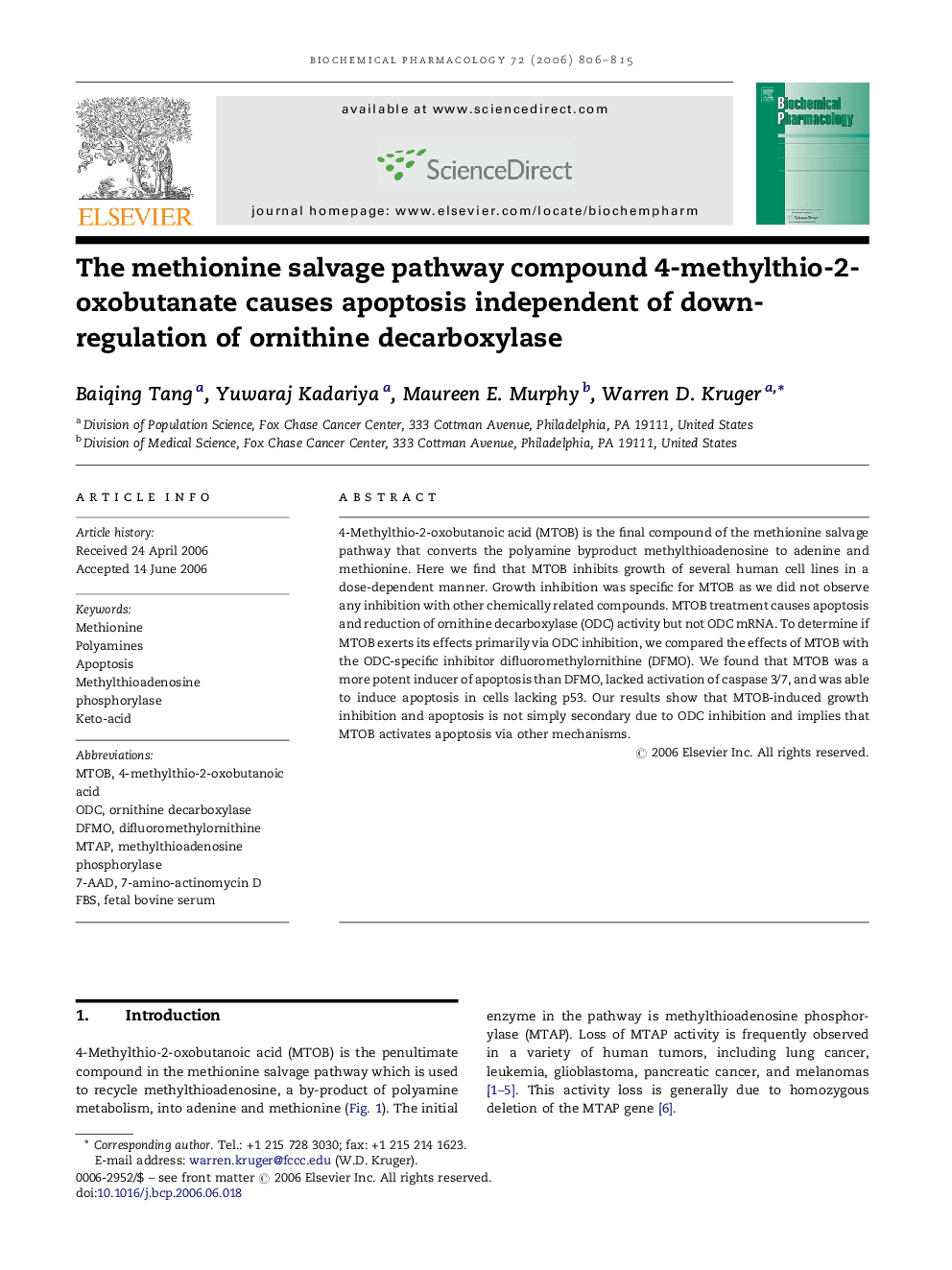| Article ID | Journal | Published Year | Pages | File Type |
|---|---|---|---|---|
| 2515038 | Biochemical Pharmacology | 2006 | 10 Pages |
4-Methylthio-2-oxobutanoic acid (MTOB) is the final compound of the methionine salvage pathway that converts the polyamine byproduct methylthioadenosine to adenine and methionine. Here we find that MTOB inhibits growth of several human cell lines in a dose-dependent manner. Growth inhibition was specific for MTOB as we did not observe any inhibition with other chemically related compounds. MTOB treatment causes apoptosis and reduction of ornithine decarboxylase (ODC) activity but not ODC mRNA. To determine if MTOB exerts its effects primarily via ODC inhibition, we compared the effects of MTOB with the ODC-specific inhibitor difluoromethylornithine (DFMO). We found that MTOB was a more potent inducer of apoptosis than DFMO, lacked activation of caspase 3/7, and was able to induce apoptosis in cells lacking p53. Our results show that MTOB-induced growth inhibition and apoptosis is not simply secondary due to ODC inhibition and implies that MTOB activates apoptosis via other mechanisms.
